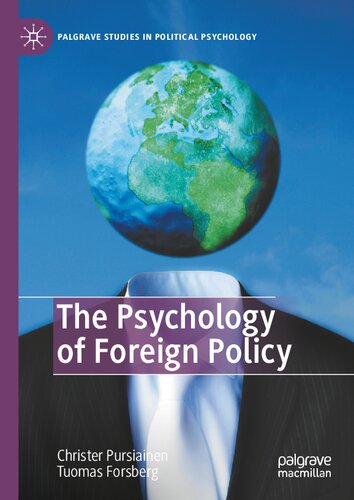

Most ebook files are in PDF format, so you can easily read them using various software such as Foxit Reader or directly on the Google Chrome browser.
Some ebook files are released by publishers in other formats such as .awz, .mobi, .epub, .fb2, etc. You may need to install specific software to read these formats on mobile/PC, such as Calibre.
Please read the tutorial at this link. https://ebooknice.com/page/post?id=faq
We offer FREE conversion to the popular formats you request; however, this may take some time. Therefore, right after payment, please email us, and we will try to provide the service as quickly as possible.
For some exceptional file formats or broken links (if any), please refrain from opening any disputes. Instead, email us first, and we will try to assist within a maximum of 6 hours.
EbookNice Team

Status:
Available0.0
0 reviewsThis book focuses on foreign policy decision-making from the viewpoint of psychology. Psychology is always present in human decision-making, constituted by its structural determinants but also playing its own agency-level constitutive and causal roles, and therefore it should be taken into account in any analysis of foreign policy decisions. The book analyses a wide variety of prominent psychological approaches, such as bounded rationality, prospect theory, belief systems, cognitive biases, emotions, personality theories and trust to the study of foreign policy, identifying their achievements and added value as well as their limitations from a comparative perspective. Understanding how leaders in world politics act requires us to consider recent advances in neuroscience, psychology and behavioral economics. As a whole, the book aims at better integrating various psychological theories into the study of international relations and foreign policy analysis, as partial explanations themselves but also as facets of more comprehensive theories. It also discusses practical lessons that the psychological approaches offer since ignoring psychology can be costly: decision-makers need to be able reflect on their own decision-making process as well as the perspectives of the others. Paying attention to the psychological factors in international relations is necessary for better understanding the microfoundations upon which such agency is based.